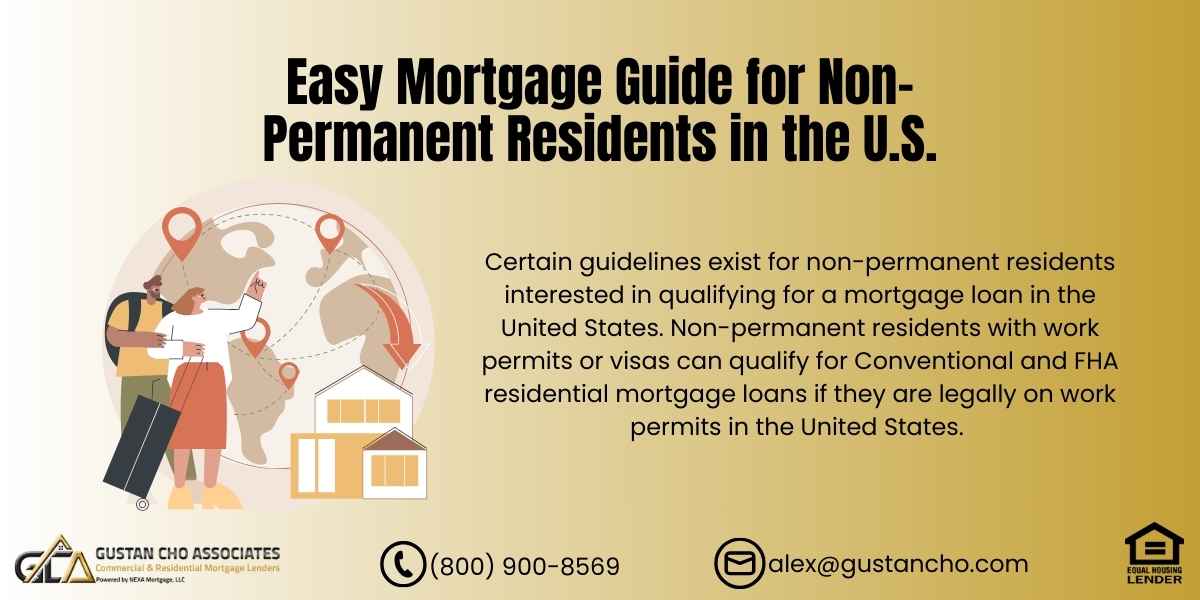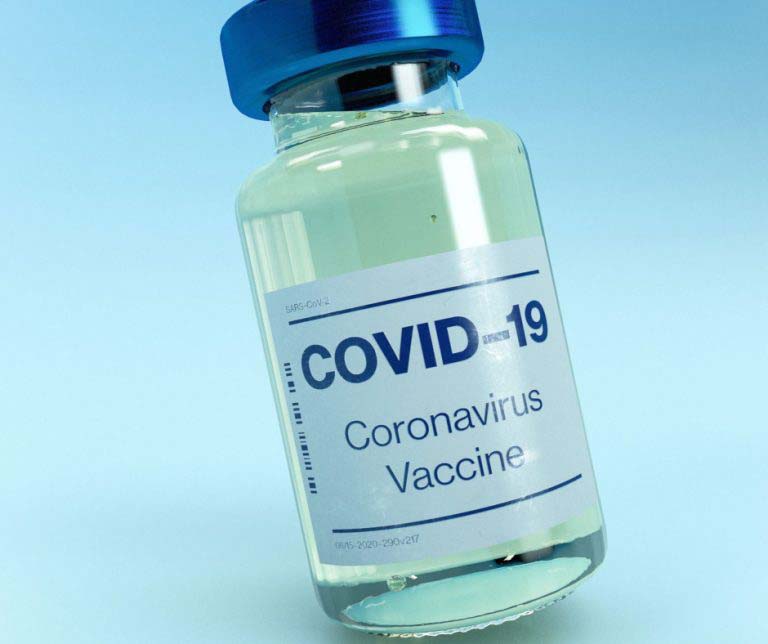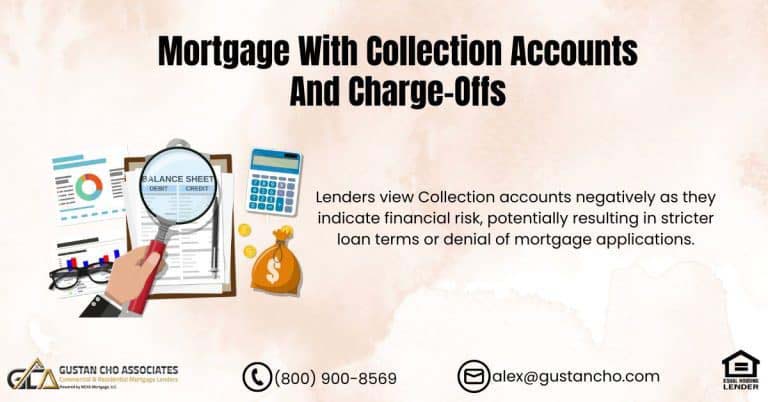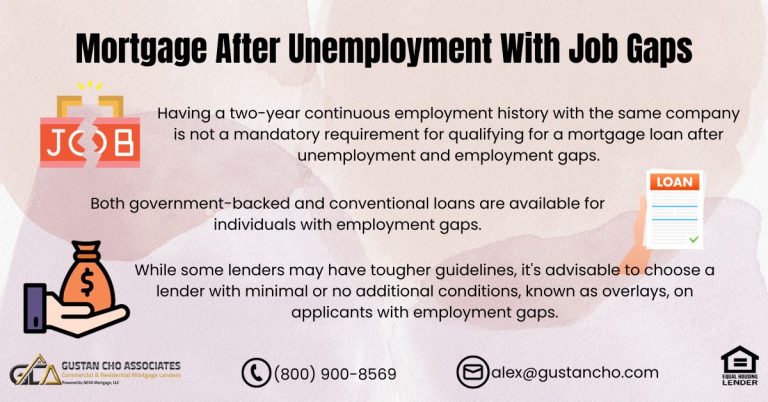This guide covers lending guidelines and mortgage loan programs for non-permanent residents. Certain guidelines exist for non-permanent residents interested in qualifying for a mortgage loan in the United States. Non-permanent residents with work permits or visas can qualify for Conventional and FHA residential mortgage loans if they are legally on work permits in the United States. Or work visas or Employment Authorization Documents, also known as EAD. This article will discuss qualifying for a mortgage for non-permanent resident borrowers.
General Mortgage Guidelines For Non-Permanent Resident Work Visas
To qualify for a residential mortgage loan for non-permanent residents, they must provide two years of work history in the United States. This work history requirement can be waived if the non-permanent resident borrower has worked for the same company and has worked outside of the United States for the same company. For example, this will be allowed if the employer is a Global corporation and the borrower was based in the employer’s Canada branch and transferred to Florida.
Non-Permanent Residents’ Employment History
The borrower also needs to have a two-year credit history. Canadian credit reports are allowed. Fannie Mae and Freddie Mac will purchase mortgage loans made to non-permanent residents legally here in the United States with valid work visas. Fannie Mae and Freddie Mac treat non-permanent residents differently than regular United States citizens.
Under Fannie Mae or Freddie Mac lending guidelines, it does not specifically state the mortgage loan documentation the lender needs to get to verify that the non-permanent resident is residing in the United States legally.
Fannie Mae and Freddie Mac leave the discretion up to the lender to determine whether the borrower is a legal working resident with the proper paperwork or permits and visas. Typically, mortgage underwriters require copies of valid work permits or work visas to determine their legal work status.
Non-Permanent Residents’ Work Visas
Lenders will require a valid work visa from non-permanent residents which is valid for at least one year. Suppose the work visa from non-permanent residents is valid for less than one year. In that case, a letter from the employer will be required with the verbiage that the employer will retain the employee and that the likelihood of future employment is likely. The verbiage in the letter also needs to state that the employer is likely to extend the work visa. Some lenders do have their overlays where Employer Authorization Document, also known as EAD, is not honored as a valid document in approving a conventional mortgage loan
HUD Guidelines on Non-Permanent Residents
The Federal Housing Administration, FHA, will insure residential mortgage loans for non-permanent residents. This holds true as long as the borrower has the proper paperwork and document to work legally in the United States, as evidenced by an EAD, also known as the Employment Authorization Document, issued by USCIS.
If the Employment Authorization Document expires in one year or less and the prior residency history status renewals exist, the lender can take that for granted that the continuation of employment will be granted. In this case scenario, the lender can approve the mortgage loan.
Suppose there is no history of prior renewals. In that case, the lender needs to do their due diligence and determine the likelihood of the renewals based on the facts and information from USCIS. Borrowers currently United States residents as refugees or asylee resident status granted by USCIS are granted eligibility to work in the United States have different rules applied. The Employment Authorization Document is not required in these circumstances. HUD Guidelines mandate that the Employment Authorization Document is a requirement. Work permits or work visas are not enough.
Take First Step Toward Making Your Dream A Reality
Apply Online And Get recommendations From Loan Experts
Mortgage Rates and Terms For Non-Permanent Residents
Non-permanent residents will get the same rates and terms as United States citizens and permanent residents. Lenders do not penalize rates and terms for non-permanent residents. For conventional and FHA mortgage loan programs, down payment requirements are the same for non-permanent residents as for United States citizens and permanent residents. However, portfolio lenders may require higher down payment requirements for non-resident residents.
There are many mortgage loan options for non-permanent residents. Most loan programs are non-QM loans for non-permanent residents that require large down payments, reserves, and compensating factors.
Applying For Mortgage For Permanent and Non-Permanent Residents
Legal documentation is a requirement when it comes to applying and qualifying for a mortgage for permanent and non-permanent residents. People who have recently moved to the United States will need to provide certain documentation depending on the type of mortgage loan program they are applying for. The documentation required depends on whether the borrower is applying and qualifying for a mortgage for permanent and non-permanent residents.
Permanent Resident Aliens Who Are Applying For Mortgage
Permanent Resident Aliens are treated the same as United States Citizens when it comes to qualifying for home loans. Permanent Resident Aliens just needs to provide proof of residency by the Immigration and Naturalization Service. Proof can be verified by providing the following types of forms to the lender:
- Permanent Resident Alien Card and/or Green Card issued by the INS
- Passport that is current and valid and stamped stating it has been approved as evidence for I-551
- I-94A form stating that the person is granted refuge and/or asylum
- Foreign valid passport that states permanent residency along with an employment authorization form
Other legal documentation provided by the INS stating the validity of the Permanent Resident status of the borrower.
Non-Permanent Resident Aliens Applying For Mortgage
There are more challenges for non-permanent residents applying for mortgage. Depending on the type of mortgage non-permanent residents are applying for, there are certain documents that will be required.
Fannie Mae/Freddie Mac And VA Loans
Borrowers applying for Conventional Loans and/or VA Loans, the following forms needs to be provided:
- Proof stating that they are currently residing in the United States
- Valid current visa with work authorization by the INS
- Proof that their current employment is likely to continue for the next three years in the United States
- If the work visa is nearing the expiration date, proof that the likelihood that it will be renewed needs to be provided
- Need to provide employment authorization documentation form which is Form I-766 or I-765 as proof and validation of employment eligibility
- The borrower needs to provide Form I-797Aalong with the attachment of I-94 or other valid employment authorization.
Borrowers who are applying for jumbo mortgage, three years of U.S. residence proof and three years of employment history with authorization need to be provided.
Apply For Non-Conforming Portfolio Loans
Apply Online And Get recommendations From Loan Experts
Applying For Non-Conforming Portfolio Loans
Gustan Cho Associates has several Foreign National Portfolio Loan Programs. One of the most popular loan programs is the following:
- Need to be employed by U.S. Company and/or subsidiary of a company that is stationed in the U.S
- Can recently have moved to the U.S. with no history in living here
- No credit score required
- No work history required
- 20% down payment
- One year reserves of P.I.T.I.
- 30-year adjustable-rate mortgages
- Minimum loan size is $100,000 and the maximum loan size is $5,000,000 million
We have other Foreign National Loan Programs and Investment Property Loans. Please contact us at Gustan Cho Associates Mortgage Group at 800-900-8569 or text us for a faster response. Or email us at gcho@gustancho.com to go over the many foreign national loan programs that may best suit the borrower’s needs.
Who Cannot Qualify For Home Loans
There are those who cannot qualify for mortgages in the United States. Here are borrowers who cannot qualify for mortgages:
- Borrowers who are temporary residents of the U.S. and are here for a short period of time
- Borrowers who have diplomatic immunity are immune to the laws of the United States so, therefore would not qualify for mortgages
Gustan Cho Associates offers foreign national mortgage loan programs and alternative financing for homebuyers. Non-QM loan programs for non-permanent residents include limited documentation mortgage loans. However, a larger down payment and compensating factors are required. Please get in touch with us at 800-900-8569 or text us for a faster response. Or email us at alex@gustancho.com. The team at Gustan Cho Associates is available seven days a week, evenings, weekends, and holidays.
Frequently Asked Questions About Non-Permanent Residents:
Q: What is a Non-Permanent Resident?
A: A non-permanent resident lives in the U.S. on a work permit or visa. This includes people here legally with Employment Authorization Documents (EAD).
Q: Can Non-Permanent Residents Qualify for a Mortgage in the U.S.?
A: Yes, non-permanent residents with valid work permits, visas, or an EAD can qualify for Conventional and FHA residential mortgage loans in the United States.
Q: What are the Basic Requirements for Non-Permanent Residents to Qualify for a Mortgage?
A: Non-permanent residents must have a valid work visa or permit for at least one year, a two-year work history in the U.S. or with the same global company abroad and then in the U.S., and a two-year credit history, although Canadian credit reports are accepted.
Q: Do Non-Permanent Residents Get the Same Mortgage Rates as U.S. Citizens?
A: Non-permanent residents can get the same mortgage rates and terms as U.S. citizens and permanent residents, with no extra fees or penalties.
Q: What Happens if a Non-Permanent Resident’s Work Visa is About to Expire?
A: If your visa expires soon, you’ll need a letter from your employer stating they intend to keep you employed and expect to extend your visa.
Q: Can Non-Permanent Residents Apply for FHA Loans?
A: Certainly! The FHA provides insurance for mortgage loans to non-permanent residents, provided you possess the required legal documentation to work in the U.S., like an Employment Authorization Document (EAD).
Q: What Kind of Down Payment do Non-Permanent Residents Need?
A: For conventional and FHA loans, non-permanent residents typically need the same down payment as U.S. citizens. However, some portfolio lenders may require a higher down payment.
Q: Are There Specific Loan Programs for Non-Permanent Residents?
A: Yes, there are special non-QM loan programs designed specifically for them. These programs might require larger down payments and additional compensating factors.
Q: What is a Fix-and-Flip Mortgage, and Can Non-Permanent Residents Apply for One?
A: A fix-and-flip mortgage is a loan designed to purchase and renovate properties for quick resale. Non-permanent residents can apply for these if they meet the lender’s criteria, which generally include a good credit score, experience in real estate investing, and sufficient financial reserves.
Q: Who Cannot Qualify for a Mortgage Among Non-Permanent Residents?
A: Due to legal restrictions, non-permanent residents who have been in the U.S. for a very short period or who have diplomatic immunity might face challenges in qualifying for a mortgage.
This blog about “Easy Mortgage Guide for Non-Permanent Residents in the U.S.” was updated on December 3rd, 2024.
Start Your Process Towards Buying A Home
Apply Online And Get recommendations From Loan Experts










